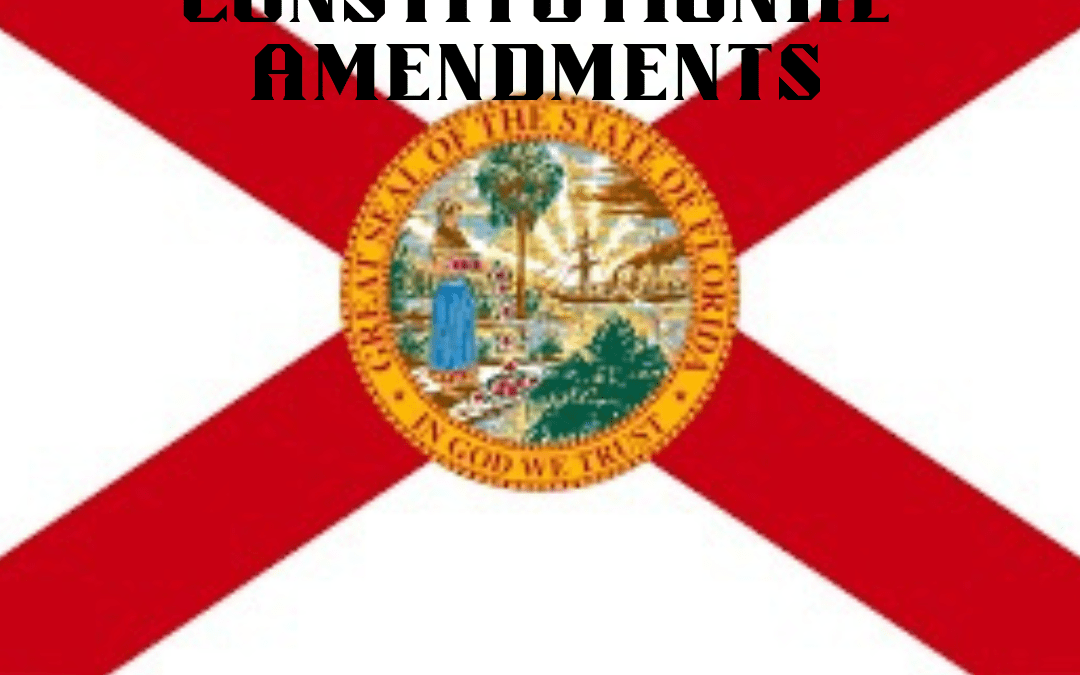In this letter to the editor, Palm Coast Council Woman Teresa Pontieri uses her background as an attorney to break down the first three constitutional amendments presented in this November ballot. Below, I’ve included her overview of the amendment, what a yes vote and a no vote would mean, and the pros and cons. She stated on record that she left her opinions on the amendments out of the letter provided. Pontieri has stated that a second letter to the editor will be coming by tomorrow evening, where she will continue her breakdown of the remaining three constitutional amendments.
Amendment 1: Education and Elections: What it Does: Proposes amendments to the State Constitution to require members of a district school board to be elected in a partisan election rather than a nonpartisan election.
-
What voting YES does: Changes the state’s current constitutional requirement that school board elections remain nonpartisan, as currently, candidates for school board seats cannot run under a party affiliation. Voting YES would overturn this requirement and allow parties to nominate
their candidates for these seats and permit candidates to have their political affiliation stated on the ballot. - What voting NO does: Keeps in place the requirement that school board candidates must remain nonpartisan and cannot run under a political
party. - Pros v. Cons: Voting yes provides more information about candidates and increases transparency for voters while voting no keeps these elections
more apolitical.
Amendment 2: Hunting and Fishing: What it Does: Enshrines a right to hunt and fish in the state constitution, making it substantially more difficult for the state to ban or restrict the hunting or fishing of species of animals.
- What voting YES does: A constitutional right to hunt or fish would make it harder for legislators to create laws that would ban or restrict various forms of hunting or fishing and would support hunting and fishing as the primary way to manage wildlife and keep animal populations at desirable
levels. - What voting NO does: Allows the legislature to more easily place restrictions on hunting and fishing activities, which are often part of an effort to conserve various wildlife species or areas.
- Pros v. Cons: Voting yes protects individuals’ rights to gaming and sporting how they wish (in line with the Florida Fish and Wildlife Conservation
Commission’s authority), while voting no makes it easier for the state to make regulations restricting the hunting and fishing of various species that
maybe threatened by excessive fishing and hunting.
Amendment 3: Legalizing Marijuana Use: What it does: Legalizes recreational/non-medical marijuana use for adults 21 and older and allows Medical Marijuana Treatment Centers and other state-licensed entities to acquire, cultivate, process, manufacture, sell, and distribute marijuana products and accessories.
- What voting YES does: Allows those 21 years of age and older to purchase and consume cannabis for non-medical/recreational uses and removes criminal or civil penalties for possession and use of up to three ounces; allows marijuana dispensaries and other state-licensed entities to acquire, cultivate, manufacture, sell, and distribute cannabis products and accessories.
- What voting NO does: Retains the current marijuana state law, which allows for consumption and sale for medical purposes only.
- Pros v. Cons: The amendment provides an additional right in the Constitution, and after the costs incurred to enact and implement necessary regulations, will generate several million dollars in local and state taxes. However, regulation of use and sale is unclear, as is liability for state-licensed dispensaries. Additionally, state law enforcement associations fear the legislation will cause public health issues and road safety concerns, saying legalizing recreational marijuana opens the door to more crime, homelessness, and traffic deaths.










